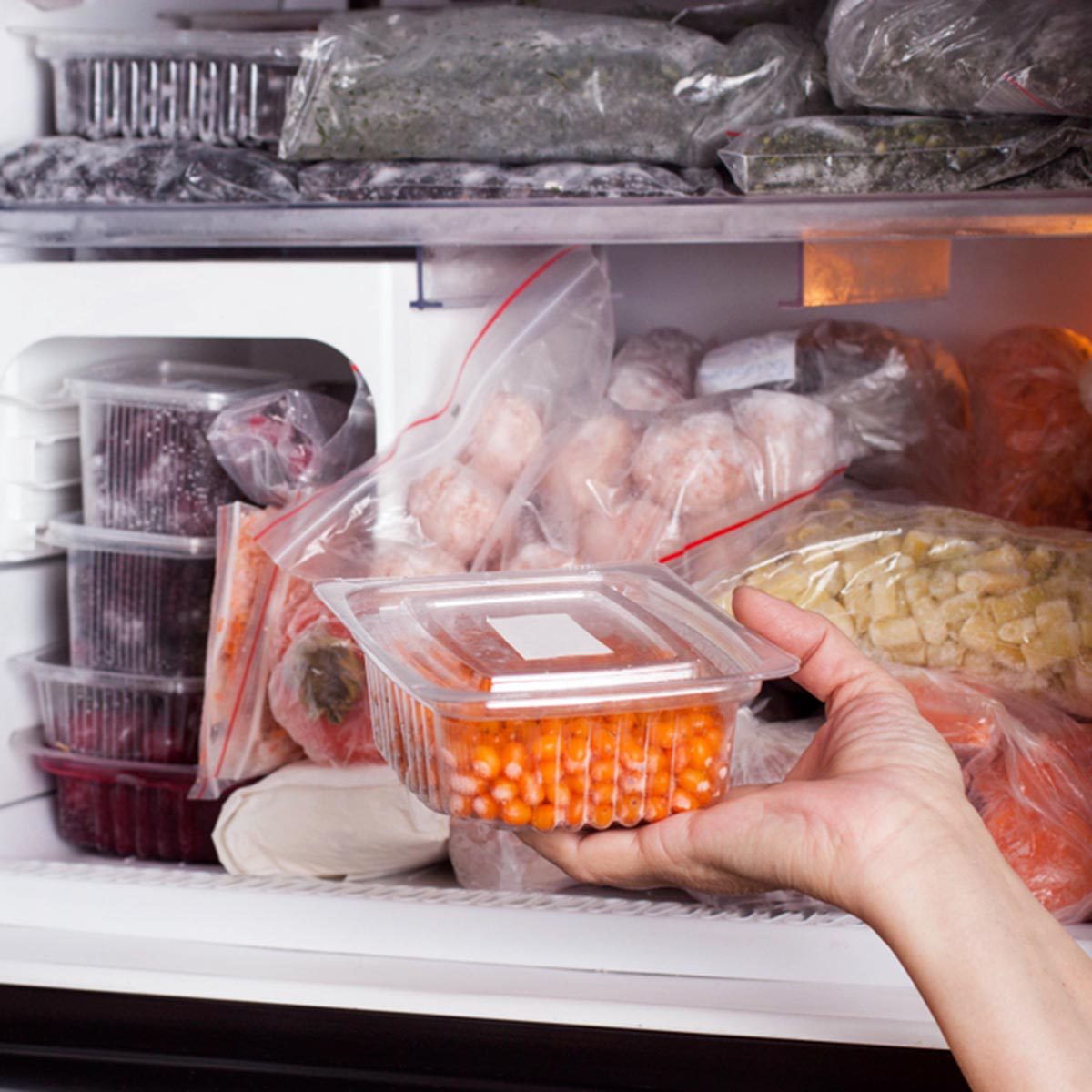
Nobody likes wasting food, and yet food waste is a major problem. The USDA found that the average American wastes about 225-290 pounds of food every year! That’s a lot of waste, including all the food scraps you should be eating. You can easily cut down on waste by changing habits while grocery shopping, cooking and organizing your kitchen.

Shop Smart
Most Americans do one big shopping trip a week, stocking up on everything from pantry staples to perishables like dairy and produce. If you struggle to eat foods before they go bad, consider adding a quick grocery shop midweek to pick up meat and produce to carry you through the rest of the week and weekend. Find more secrets for smarter grocery shopping.

Start Meal Planning
We love meal planning on the weekend: It makes grocery shopping simpler and prevents you from standing in front of the fridge and wondering what to cook at 5:00 p.m.
The trick? Not biting off more than you can chew. It’s easy to imagine that you’ll want to cook a big meal every night, but with hectic schedules this isn’t always realistic. Build in nights off so you’re not buying food you can’t cook.

Wash and Prep Fresh Food ASAP
Did you stock up on fresh fruits and veggies at the farmers market? Do yourself a favor and take the time to wash, trim and chop vegetables as soon as possible after buying them. You’ll be more likely to eat them up when they’re so easy to toss into a skillet or into a salad.

Organize Your Fridge
It’s easy to lose track of food in a cluttered and overcrowded refrigerator. We’ve all unearthed an ancient bag of carrots or cream gone fuzzy at the back of the shelf. Take the time to organize your fridge the smart way, from decluttering to keeping perishables toward the front.

Reimagine Leftovers
Leftovers night doesn’t have to be a dismal affair. If your family balks at eating the same reheated stew day after day, consider reinventing leftovers. Shred leftover meat and turn it into a pasta sauce, combine leftover vegetables into a frittata or make a stir-fry of old rice. Find more ideas for repurposing leftovers.

Have a Weekly Clean-Out Meal
Another creative way to clear out leftovers is to have a clean-out night. Set out food that needs eating up (think cooked beans or meat) along with chopped vegetables (like carrots and tomatoes), plus some fun fillers (think nuts, cheese, avocado and pickles). A buffet-style set-up turns dinner into a casual bistro-style event that’s a breeze for cooks.

Put an Egg on Top
Sometimes, you can save food simply by cooking a smaller meal. A brilliant trick for stretching a small meal? Add an egg. Turn a salad into dinner by adding sliced hard-boiled eggs. Cooked veggies tucked into an omelet makes a hearty dinner in a flash. A dish of leftovers that wasn’t quite enough for a full meal suddenly becomes filling with the addition of a fried egg.

Make a Stem and Leaf Pesto
There’s some food waste you didn’t even realize you could eat! Think of the stems of greens like chard or kale, carrot leaves, tough leaves and ragged herbs. Turn these tough greens into a tasty sauce. Cook rough foods like kale stems in oil until they’re soft, and then blend them with softer stems and greens, garlic, spices and olive oil to make a casual version of pesto.

Use Scraps and Peels for Stock
Don’t just toss peels, cores and scraps. If they haven’t gone bad, they’re perfectly edible! Just about any vegetable and meat scrap can be used up in a homemade broth. Even rough skins, like butternut squash and papery skins, like garlic and onion, lend plenty of flavor to a broth, which can go into any soup, stew or just a cozy mug when you’re under the weather.

Freeze, Freeze, Freeze
The secret weapon against food waste: the freezer. Most foods can be frozen. Bought meat you can’t use in a couple of days? Put it in the freezer. Did you cook a big pot of soup? Freeze half of it. Stocked up on milk on sale? Freeze it. Deli meat, eggs, cheese, bread—freeze them. Here’s a guide to freezing food right.

Make Your Pantry Work for You
Reduce your reliance on fresh, perishable foods by keeping a well-stocked pantry. Staples like pasta, grains and frozen vegetables can supplement a small meal.
Oh, and keep an eye on expiration dates. Put newly bought food in the back of the pantry and eat the older food first. If food is hovering just past its expiration date, consider eating it. Here’s what expiration dates really mean.

Take Note of What You Do Toss—and Learn to Avoid It
When you do have to ditch food, take a mental note about what happened. Did you lose the food in the fridge? Did you over-shop? Was it a food that your family just doesn’t like? Learn from your mistakes and you won’t repeat them next time.
The post 12 Genius Tips for People Who Hate Throwing Food Away appeared first on Taste of Home.
Kelsey Rae Dimberg